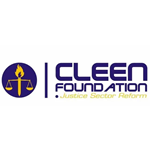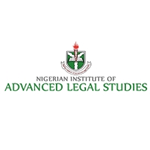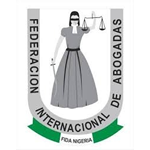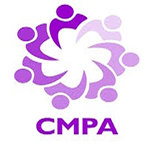Sponsors

MacArthur Foundation
The MacArthur Foundation boldy invests in creative solutions to urgent challenges, sparking hope for our future. We work on a few big bets that strive toward transformative change in areas of profound concern, including the existential threats of climate change and nuclear risk, the challenges of criminal justice reform in the U.S. and corruption in Nigeria. In addition, we maintain enduring commitments in our hometown Chicago, where we invest in people, places, and partnerships to build a more inclusive Chicago and in journalism and media, where we invest in more just and inclusive news and narratives. We also make awards to extraordinarily creative individuals through the MacArthur Fellows program and for solutions to critical problems of our time through 100&Change. For more information, kindly visit
Organising Bodies

Centre for Fiscal Transparency and Integrity Watch
The Center for Fiscal Transparency & Public Integrity (formerly Center for Fiscal Transparency & Integrity Watch) is a non-governmental and non-partisan organization founded in 2016 to promote accountability, transparency, and good governance across all levels of the public sector. Utilizing technological solutions, the Center monitors public sector expenditure and fosters public access to this information. It also monitors the integrity of public officers and institutions' responsiveness to scrutiny. Serving as a resource hub for issues such as crime, compliance, asset recovery, and illicit financial flows, the Center collaborates with government and civil society organizations (CSOs) to implement programs that strengthen democracy and governance in Nigeria. Its mission is to advocate for good governance, transparency, accountability, and public sector integrity, with a vision to enhance human dignity in public life. For more information, kindly visit

The Independent Corrupt Practices and Other Related Offences Commission (ICPC)
The Independent Corrupt Practices and Other Related Offences Commission (ICPC) is mandated to investigate, prosecute, and prevent corruption in Nigeria. Established under the ICPC Act of 2000, its responsibilities include receiving and investigating public complaints of corrupt practices, prosecuting offenders as necessary, and overseeing the review of operational systems in public bodies to curb corruption. The Commission advises and assists public officers and agencies on fraud prevention, recommends improvements in operational procedures to deter bribery and corruption, and educates the public about these offenses. Additionally, ICPC works to enlist public support in the anti-corruption effort, ensuring that prosecutions under the Corrupt Practices Act are conducted with the Attorney-General's consent, and that designated courts in each state handle cases related to the Act. For more information, kindly visit

Centre for Socio-Legal Studies
The Centre for Socio-Legal Studies (CSLS) was established in 2006. It promotes a multi-disciplinary approach to the study and practice of law. It proceeds on the premise that law cannot exist in isolation from other social phenomena. It must therefore be approached and applied in context. The CSLS seeks to mainstream the understanding and application of law with reference to its social, economic, cultural and political environment. We believe that the challenge of underdevelopment and the various social vices that dog our nation’s attempts at development are traceable to failure to create innovative solutions or responses or to adapt the received laws and procedures in a manner consistent with our needs, culture and experience. The Centre played a leading role in developing the Evidence Act 2011. It collaborated with the Federal Ministry of Justice and the National Assembly in modernising the Nigerian Evidence Act. The innovations in the Evidence Act 2011 were mostly drafted and recommended by the Centre for inclusion in the Evidence Act 2011. For more information, kindly visit

Administration Of Criminal Justice Monitoring Committee
The Administration of Criminal Justice Monitoring Committee was established in 2015 under Section 469(1) of the Administration of Criminal Justice Act 2015 (ACJA). The ACJMC serves as the custodian of the ACJA, ensuring its effective application across Nigeria's criminal justice system. The committee focuses on monitoring compliance with key provisions of the Act, including pre-trial processes, trial proceedings, case management, and institutional reforms. ACJMC also advocates for gender equity and social inclusion within the criminal justice framework, guiding and supporting state-level monitoring committees where ACJA provisions are adopted. Additionally, ACJMC engages in legislative advocacy and participates in constitutional reviews to align the ACJA with Nigeria's constitution, responding to recent legal developments such as the Supreme Court's decision on section 396(7) of the ACJA.

Juritrust Center for Socio-Legal Research and Documentation
The Juritrust Center for Socio-Legal Research and Documentation AKA Juritrust Centre (JCSLRD) formed in 2013 is a non-governmental organisation engaged in researching and tracking legal, adevelopmental and governance issues in society. The Juritrust Centre also organizes bespoke national and international seminars, workshops, conferences and advocacy in Criminal Justice, Anti-Corruption, Forensic Evidence, Legal Writing, Legisative Drafting, Industrial Relations and many other fields, for prosecutors, drafters, magistrates in many areas of professional and career interests. It is accredited by the National Judicial Institute as a provider of overseas courses for judicial officers. It is also an accredited service provider for the Nigerian Bar Association Institute of Continuous Learning Education (NBA-ICLE). For more information, kindly visit

Centre for Democracy and Development (CDD)
The Centre for Democracy and Development (CDD) was founded in 1997 in the UK and formally established in Nigeria in 1999 as an independent non-profit organization. Dedicated to fostering democratic development, CDD engages in research, training, advocacy, and capacity building across West Africa. It aims to mobilize global support for democratization while providing a platform for critical reflection on challenges to democracy and development in the region. CDD advocates for best practices and alternatives to enhance democratic governance and economic integration in West Africa, promoting human security and people-centered development. Since its inception, CDD has expanded its influence beyond Nigeria, becoming a key institution for strategic analysis, capacity building, and policy advocacy in the sub-region. It serves as a vital link between policymakers, civil society, and academics, contributing significantly to democratic governance and sustainable development efforts in West Africa. For more information, kindly visit

Rule of Law and Empowerment Initiative
The Rule of Law and Empowerment Initiative also known as Partners West Africa Nigeria (PWAN), is a women-led NGO dedicated to enhancing citizens’ participation and improving security governance across Nigeria and West Africa. PWAN focuses on three core program areas: Rule of Law, Citizens Security, and CSO Strengthening. Led predominantly by experienced professional women who also constitute a majority of its board, PWAN operates with a strategic and adaptive management approach, prioritizing field presence, accountability, and cost efficiency. Leveraging extensive experience in consortium management and program delivery throughout West Africa, PWAN seeks to promote effective governance and societal empowerment through its initiatives. For more information, kindly visit kindly visit

Legal Defence and Assistance Project
The Legal Defence and Assistance Project is a Nigerian non-governmental organization (NGO) dedicated to promoting the rule of law, human rights, and good governance. Established in 1997, LEDAP focuses on reforming laws, strengthening public institutions, and supporting indigent victims of human rights violations. With a focus on criminal justice reform, women's rights, anti-torture campaigns, and abolishing the death penalty, LEDAP drives key legal reforms and collaborates with public institutions to enhance justice delivery. LEDAP partners with organizations such as the MacArthur Foundation, World Coalition Against the Death Penalty, Ford Foundation, Malala Fund, Amplify Change, UNDEF, among others, to achieve its goals. For more information, kindly visit

CLEEN Foundation
CLEEN Foundation (formerly known as Centre for Law Enforcement and Education) is a non-governmental organization established in January 1998 with the mission of promoting public safety, security and accessible justice through the strategies of empirical research, legislative advocacy, demonstration programmes and publications, in partnership with government, civil society and the private sector. CLEEN Foundation has Observer Status with the African Commission on Human and Peoples' Rights based in Banjul, The Gambia. Please visit for more information on the organization.

Nigerian Institute of Advanced Legal Studies
The Nigerian Institute of Advanced Legal Studies was established in March 1979, stands as Nigeria’s premier institution for advanced legal research and education. It was conceived to centralize advanced legal studies across Nigerian universities with Law Faculties, providing a hub for postgraduate research under the guidance of seasoned academic lawyers, both domestic and international. The institute aims to house the most comprehensive law library in the country, equipped to support scholarly pursuits and address deficiencies in the training of Nigerian lawyers, particularly in postgraduate studies. For more information, Please visit

FIDA Nigeria. International Federation of Women Lawyers
Federacion Internationalé De Abogadas (FIDA), established in Mexico in 1944, translates to the International Federation of Women Lawyers. In Nigeria, Ambassador Aduke Alakija founded its branch, FIDA Nigeria, in 1964. FIDA Nigeria is a non-profit, non-political association of women lawyers committed to safeguarding the rights of women and children across Nigeria. Emphasizing values such as transparency, accountability, integrity, and non-partisanship, FIDA Nigeria aims to promote UN principles in legal and social contexts, foster international relations based on equality, support comparative law studies, and advise the government on matters concerning women and children. It achieves these goals through initiatives including free legal representation, advocacy, education, mediation, counseling, and information dissemination. With branches in all 36 states and the Federal Capital Territory, FIDA Nigeria operates under elected state officers overseen by national executives and the Secretariat. For more information, Kindly visit

Law Hub Development and Advocacy Centre
Law Hub Development and Advocacy Centre (Law Hub) is an independent non-governmental organization committed to advancing the rule of law and fostering good governance for the establishment of a secure, peaceful, and sustainable society with an effective justice system. Its mission encompasses promoting fairness, justice, and equality under the rule of law, while envisioning a future where these principles flourish alongside sustainable development. Law Hub achieves this through initiatives such as enhancing justice sector reforms, advocating for human rights and gender equality, conducting environmental and climate change research, strengthening electoral processes, combating corruption, and advocating for sustainable economic policies. These efforts are supported by strategies including legal and policy advocacy, providing legal aid, capacity building, public education, research and documentation, and consulting and technical services to contribute effectively to societal well-being and governance enhancement. For more information on Law Hub and its activities, Kindly visit

The Centre for Media, Policy, and Accountability
The Centre for Media, Policy and Accountability (CMPA) is an independent, not-for-profit organization dedicated to promoting transparency, accountability, and good governance in Nigeria. Established under the Companies and Allied Matters Act 2020, CMPA’s mission is to strengthen social, economic, and democratic governance through research, policy analysis, and media advocacy. CMPA focuses on anti-corruption initiatives, policy analysis, media advocacy, and capacity building. Key projects include the Nigeria Anti-Corruption Performance Public Reporting (NAPPR) Project, funded by the MacArthur Foundation, aimed at standardizing anti-corruption reporting. Led by Dr. Suleiman A. Suleiman, CMPA collaborates with various stakeholders to enhance governance and empower communities. CMPA’s work has significantly impacted Nigeria’s anti-corruption landscape, fostering a culture of transparency and accountability. For more information, visit www.cmpa.com.ng kindly visit
